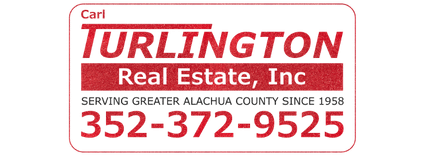Sales Process

There are very few times in life when you'll be involved in a transaction as large as selling your home. You've probably invested a lot in your residence, both financially and personally, giving a lot of yourself, over the years, so it's important to make sure the process of selling it goes as smoothly as possible. Whether you're upgrading to a larger home, or downsizing after the kids have grown up, the order of events in it's sale will be the same. However, each area has its own rules about specific additional steps that must occur, so it's a good idea to have a real estate agent oversee things from the beginning. Regardless, this guide can help you determine what should be happening when, and identify parts of the process that sometimes create little bumps along the way.
Set The Asking Price
Although it's often part of the negotiations, the price you initially set affects the entire process. If you set it too low, you won't receive the home's full value. If you go too high, buyers won't show interest in your home. Even if the price is adjusted later, the home could carry a stigma for going unsold for a period of time, and fewer people will consider it. In the end his can result in you being forced to sell the home below market. There are several factors that go into determining the best price at which to list your home, and a real estate agent can help make sure you're on the right path. Your real estate agent will perform a comparative market analysis or broker price opinion that will take into consideration:
- The price of other similar homes in the neighborhood that have recently sold
- Improvements you have made to the home
- Unique features (like lot size or a swimming pool)
- The price per square foot of other homes on the market
- The type of market you are in based on the current market absorption rate (sellers, buyers, or balanced market)
Determine If You Have To Disclose Anything To Prospective Buyers
It's better if you can fix major issues with the residence before you sell it. However, there are some issues you may not be able to correct, and others that you must legally disclose regardless. Although this is not an inclusive list, some of the most-common disclosures are detailed below:
- City development projects coming to the area, like freeways
- Hazards (like lead paint, asbestos, and structural defects)
- Pest issues (like ants, mice, etc.)
- Condition of all amenities in the property
- Anything that can affect the life and enjoy-ability of the property
Perform Local Inspections And Required Work Order Repairs
Some local cities and counties may require city inspections, often known as "Truth-in-Sale Housing Inspections" or "Time-of-Sale Inspections". Not all communities require these inspections be performed. In addition to those communities that do require city inspections, there are some that may require some repairs in order to sell your home to potential buyers. Failing a city's requirements can result in an additional cost with re-inspections. As a rule of thumb, it is always best to complete minor repairs to your home prior to putting it up for sale. Not only will repairs make your home look better, they will also prevent possible work orders. What is called into question can vary from city to city, but common items that get called in these city inspections include:
- Inoperable smoke detectors/carbon monoxide detectors
- Missing backflow preventers on outside waterlines and laundry tubs
- Improper plumbing fixtures (toilets, sinks without s-traps, etc.)
- Improper venting for dryers, water heaters, and furnaces
- Missing hand railings
Market And Show Your Home To Prospective Buyers
Your real estate agent has a wealth of market knowledge. He may make suggestions to you so that your home sells for top-dollar. When marketing your home for sale, consider how to best:
- Make your home presentable and possibly make slight improvements
- Stage the home so buyers feel welcomed by it
- List the home and advertise it (which your agent will do)
- Show the residence to interested parties
- Host open houses to encourage multiple offers
Examine And Discuss Offers
If you have an open house, some buyers may work with your agent to submit an offer, though most buyers work with their own agent. In a perfect world, your buyer will agree to pay the full asking price and not make any special requests. In the real world, offers will have some differences worth comparing. Below is a list of things to compare when reviewing offers on your home.
- Requested price
- Financing pre-approvals
- Closing date
- Occupancy date
- Tax proration
- List of items the buyer wants left in the home
- Things the buyer wants done before signing (like a home inspection, pest inspection, or repair)
- Contingencies (such as the buyer's approval for financing or the sale of an existing home)
Negotiate Or Accept An Offer
If an offer is reasonable to you, you may accept it and move on. However, you may wish to negotiate further with the help of your agent. Your REALTOR® will bring all of their experience and skills to the negotiating table to ensure that you sell your home for the highest value possible.
Remove Contingencies
Once the offer is accepted, the buyers will begin working to remove any contingencies that are held in the offer. These can include, but are not limited to:
- Financing
- Appraisals
- Inspections
- Repairing work orders
- The sale of another property
- The cancellation of a previous purchase agreement
Close The Deal
The closing process involves the title agent and title company. Sometimes real estate lawyers are involved as well, and your agent will help coordinate events and make sure things that need to be done are being done. At closing, you will:
- Sign the documents and transfer the title
- Accept the payment (minus the cost of document preparation and other transaction fees)
- Give the new owner the keys
- File the documents with the proper governmental offices
Once the deal has been signed, you should prepare to move. Then, you can begin packing and contacting your service providers to establish a transfer to your new place or cancel them altogether. In any case, your home is sold, and you can move onto the next exciting chapter of your life.





